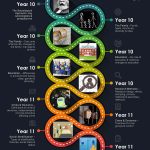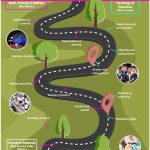Sociology
Intent
‘The function of sociology, as of every science, is to reveal that which is hidden.’ Pierre Bourdieu
The study of GCSE & A level AQA Sociology at Weatherhead High School focuses on contemporary society. Studying sociology fosters the development of critical & reflective thinking with a respect for social diversity. All students, no matter what background or starting point, are encouraged to develop their own sociological awareness through active engagement with the contemporary social world. Both the GCSE & A Level courses have strong links to spiritual, moral, social & cultural development as they teach & reinforce traditional British values as a core element of the courses. Students actively learn about democracy, individual liberty, rule of law & mutual respect within the topics studied.
The overall aim of sociology is to encourage students to look at the world in a more critical way & question why society functions in the way that it does. These students are the future workforce of our country, & maybe even further afield due to the globalised world we live in, therefore it is essential they understand how the world has been made into what we see today & how even as individuals they can influence positive change in the future.
Implementation
Our GCSE begins with a focus on subject specific terminology that is then used & built on throughout the course, as well as a focus on main sociological theory that is used to evaluate the existence of the four main topic areas under study. After this essential foundation knowledge, our Y10 students study the family & education topics, looking at the structure & evolution of both and what different sociological perspectives have to say about the position of families & education within society. The students are then taught how sociologists use both primary & secondary research methods to study society & this is interlinked back to the family & education topics due to the ‘methods in context’ style questions contained in the examination papers. In Y11, the students develop their knowledge of society further by looking at crime & deviance and social stratification. These topic areas are best placed in the 2nd year as they contain themes, examples & ideas that many students may be unfamiliar with & they contain more of a political element that is often more suited to students in Y11. Research methods are once again linked into these Y11 topic areas before specific assessments to allow for the application to the ‘methods in context’ style examination questions.
A great deal of what is studied at GCSE lays a strong, solid foundation of knowledge & skills for the study of sociology at A level, but our chosen specifications in no way exclude students studying sociology for the first time. Our A level course sees students studying two topics concurrently – education and wealth, poverty & welfare. The education topic looks at its purpose in society, how it has developed into the system we know today & how it may advantage or disadvantage certain groups of people within society. We begin the course with this unit as it is something that all students can relate to as they have spent more than 10 years studying within the education system we are examining. At the same time, the topic of wealth, welfare & poverty can often be harder for students to relate to in the beginning, however we as a department believe it is an essential topic that lays the foundations to understanding the significance of stratification in society & its related effects to other topic areas. Both of these topics involve the study & understanding of main sociological theories & their views on the issues raised. Following this, students then begin to study what research methods are used by sociologists & how research is conducted & try some of the techniques out for themselves.
Moving into Y13, students begin the final year of the course by studying the units of crime & deviance and beliefs in society. In the crime & deviance topic, they examine various levels of the criminal justice system & assess its function & role within society through a number of sociological theories, as well as continuing with the running theme of who benefits & who loses out from crime & the way in which it is dealt with in society. The study of religious & political beliefs in society is once again a vital area of contemporary study given the significance of a rise in often extreme views & the resulting conflicts that are often global in nature. An important element of both these Y13 topics is understanding globalisation & its impact – students are able to look at real life examples of globalised exploitation & conflict that contribute significantly to inequalities in the world they are growing up in. Finally, in Y13 students are brought back to focus on sociological theory & the debates they raise within the study of society to enable the students to make final synoptic links between the topics we study before their examinations.
This combination of units provides students with a range of cross-curricular links, including geography, psychology, English & history. It often builds on prior & current learning from many of these subjects. During the course, students will develop critical thinking skills & with that will be able to analyse & evaluate explicitly in their written work to be able to achieve top mark band responses. Students learn about cultural capital as part of the education topic & they are encouraged to seek out knowledge & experience that enhances & adds to their learning. Students are constantly encouraged to use various forms of media to add to their knowledge of sociology & find current, real-life examples of sociology in the real world that could be used as examples & evidence in their written work & during class discussions.
Impact
Studying sociology at Weatherhead High School provides students with a wide range of key skills that can be effectively applied in both further education and employment. Of the 55 Y13 sociology students who completed their Sociology A Level in June 2022, 80% were successful in continuing their educational journey at university with 9 students instead choosing to complete an apprenticeship and/or enter employment. Of the vast majority of our students who went onto university, 18% did so at Russell Group Universities including one gaining entry into the University of Oxford. The study of sociology enables and leads our students into a wide range of courses, examples of which include:
- Law with Politics at the University of Liverpool
- Law at the University of Manchester
- History and Sociology at the University of Leeds
- Sociology at the University of Manchester
- Speech and Language Therapy at Birmingham City University
- Politics and Sociology at Liverpool Hope University
- Criminology at Liverpool John Moores University
Our sociology students leave us equipped with a wider knowledge & critical understanding of the world they live in due to their studies and the passion for the subject demonstrated to them by their teachers. Our alumni show us that this often leads into employment roles that are focused on making a positive difference to society and individuals within it such as education, social work, policing and probation. We as a department look forward to continuing to empower & equip our students with the skills and awareness needed to thrive in our ever changing world.

